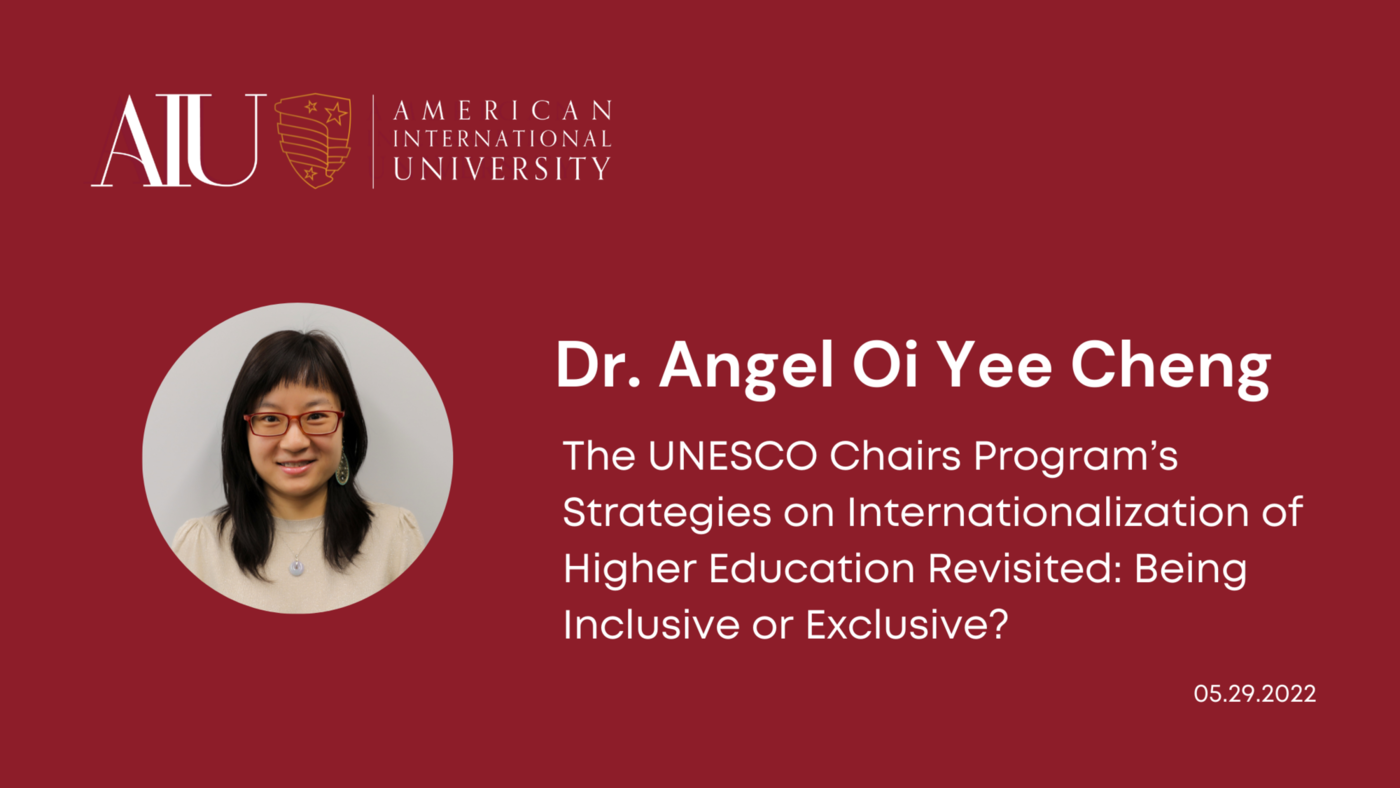The UNESCO Chairs Program's Strategies on Internationalization of Higher Education Revisited: Being Inclusive or Exclusive?
May 30, 2022

Intensified globalization is influencing most of our lives daily with positive and negative impacts. Education is not immune to it. Due to this reason, the internationalization of higher education has also become a global phenomenon. The UNESCO Chairs Program is one of the legitimate global initiatives to focus on the role of the higher education sector worldwide to enrich the institutions’ existing university programs and promote cultural diversity. This research studied the UNESCO Chairs Program partnership and examined how the strategies have achieved its goals. Qualitative research methods were used in this study. The public artifacts on the official websites of the UNESCO Chairs Program were studied and analyzed through qualitative content analysis (QCA) and critical discourse analysis (CDA). These two qualitative methods have aligned with the normative pressures under neoinstitutionalism and its coercive power as well as Said’s theory of post-colonialism. The aims were to explore the missions of the UNESCO Chairs Program implemented at the global and institutional levels. The results illustrated the complexity of the UNESCO Chairs Program through its shared expectations and contextualization as well as the layers of power being nested at the international and institutional levels.

